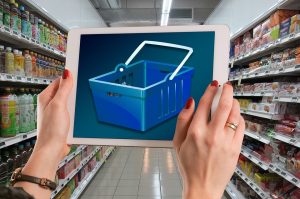Bad weather and infamous natural disasters like Hurricane Sandy or Hurricane Katrina show how rapidly large-scale natural events can affect a supply chain. At the same time, it can also help to tell us more about how companies should weather-proof your supply chain to respond to such events.
What You Can Do to Help Weather-Proof Your Supply Chain
What’s normally a supply chain used for the sale of goods becomes a lifeline in the event of a natural disaster. Companies that are able to move goods, even through natural disasters like these, are able to get essentials (like food and water) to people and locations who might be stranded without these essential goods.
Hurricane Sandy caused near $62 billion in damages across the United States. In the same vein, imagine what the next storm might do – and what it could do to your company.
If you’re a company in the supply chain business, here’s what you can do to weather-proof your venture before the storm hits.
Weather Prediction and Warning Systems
Weather prediction and warning systems are relatively easy to implement into your supply chain. Moreover, these days they rely on artificially intelligent systems crunching numbers – and these systems are rarely wrong. The implementation of an early warning system means that you and your drivers will know about the potential of a storm or bad weather far before it hits. This way, you’re far more prepared and can switch to an alternate route or plan before any other company in town.
Intelligent Electronic Goods Tracking
Intelligent electronic goods tracking means having a supply system in place that can tell you – at any point in time – exactly where your trucks and goods are in relation to their pick-up and drop-off destinations. To clarify, goods tracking doesn’t have to be done with old-fashioned ledgers. That is to say, it can be done with artificially intelligent computer systems that can track down the location (and destination) of goods at any point in transit.
As a result, linking up with your cargo in this way allows you to be more instantly in touch with it in the event of weather or crisis.
Calculated Alternate Routes
One of the other benefits that AI systems might have for your supply chain is the ability to calculate alternate routes automatically. For example, should one route be blocked as a result of emergency, an alternate route is almost certainly available. In addition, arrange a central emergency drop point for this that allows goods to get to a safe, intermediate location.
Emergency Driver Training
For the time being, supply chains are still driven by people on the roads. Consequently, this means that emergency (and subsequently, first-aid) training are vital for anyone employed in your fleet. The best AI systems can fail without having drivers informed on what to do. Make sure drivers are trained for safety, and ensure they know how to handle serious emergencies.
Christopher Morgan Fulfillment Center Services
Christopher Morgan Fulfillment has access to more than 600,000 square feet of professionally managed, secure, dry storage space, warehousing & distribution in Milwaukee and in all regions of the United States.
Our facilities are located in:
- New Berlin, Wisconsin
- Milwaukee, Wisconsin
- Atlanta, Georgia
- Los Angeles, California
- East Brunswick, New Jersey
 Direct To Customer
Direct To Customer
- Direct Response
- E-commerce Fulfilment
- Catalog/Print Advertising
- Continuity/Membership/Awards
- Customer Contact Center
 Retail Distribution
Retail Distribution
- Big Box Retail Distribution
- Home Shopping
- Electronic Data Interchange (EDI)
- Experts at Retail Compliance
- Partner Testimonials
BUSINESS TO BUSINESS
- Warehousing & Distribution
- Lot Control
- Kitting/Light Assembly
- Inspection Services
- Repackaging & Rework Services

